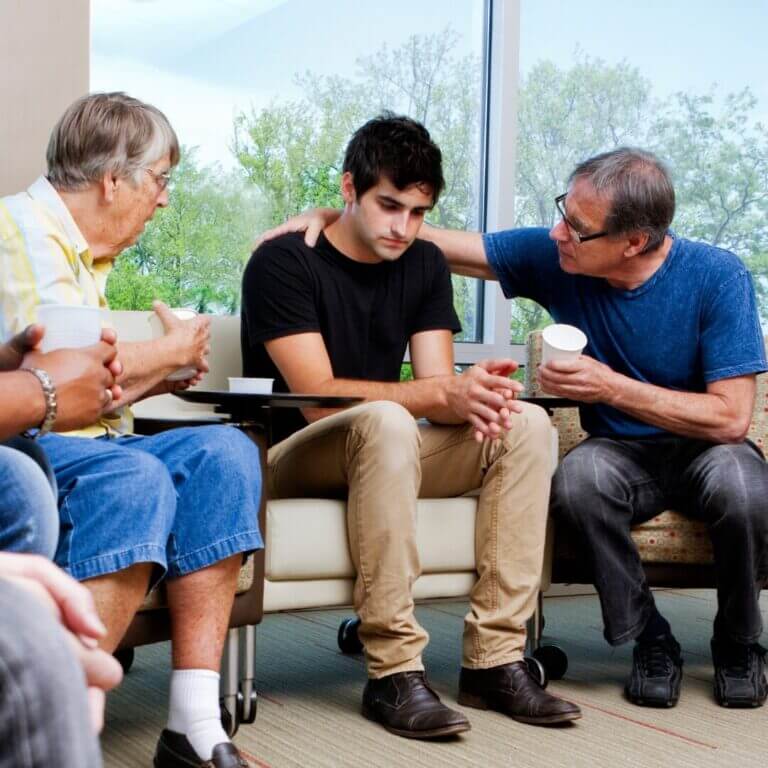Labeling an occurrence as trauma isn’t easy. This is often because there is a core belief that only certain events qualify as trauma, however, the word itself is very simply defined as “a deeply distressing or disturbing experience.” There are no qualifiers in that definition, no requirements, trauma often looks different for each individual because the life events and experiences of each person are unique. Carrying this core belief that what has been experienced does not qualify may prevent an individual the opportunity to invest time and work into moving past how a personally traumatic event has affected them. When it comes to the individual experience, why is there a struggle to call it trauma?
Trauma Comes in Different Forms
According to the Substance Abuse and Mental Health Services Administration, 61% of men and 51% of women report exposure to at least one lifetime traumatic event. While traumatic events are often thought of as being only large-scale events such as car accidents, physical abuse, exposure to combat, or surviving a natural disaster, there are often other forms of trauma that still create problems with the management of emotions. The distinction between the two is commonly referred to as small-t and large-T trauma or little-t and big-T trauma. This can be a helpful way to recognize and open up about events in life that have significantly impacted or had lasting effects on a person. Recognizing that there are different kinds of trauma based on personal experience might help remove the struggle to label it as such.
Small or Little-t Trauma
What might small-t trauma look like for a person? These are traumatic events that may not have threatened physical safety or survival the way that some forms of large-T trauma have. However, they have had a significant amount of impact on an individual’s ability to cope and emotionally process. These small-t traumas are often rationalized by those that experience them as being common events that many people endure, and until the event is recognized as traumatic, the person may not have the opportunity to recognize and thus work through the impact it has had on their lives and ability to manage their emotional reactions. Deciding the event is common and choosing not to call it trauma is a form of avoidance when one tries to avoid having to look at what is painful. It’s important to examine how significant the event was to a specific person in order to understand the depth of the impact it might have had on them. Some of these types of trauma might include:
- Being bullied
- Divorce or a parents’ divorce
- Having a child
- Infidelity
- The sudden end of a significant relationship
- Job loss
- Unexpected financial strife
- Sudden relocation
What might cause small-t trauma for one person might not cause it for another. If one was never close to their parents as a child and then those parents choose to get a divorce, it may not have a traumatizing effect on that individual. Although, if someone was raised in an especially tight-knit family and those parents made the decision to get a divorce while they were in their formative teen years, this might become the cause of small-t trauma. It’s important, to be honest about how much these events come to mind and are triggered by certain things. Speak to a mental health professional to assist in working through the effects of small-t trauma in order to gain a better grasp on the emotional impact.
Large or Big-T Trauma
The types of life events someone might label large-T are those large-scale life events that many classically associate with the idea of trauma. These kinds of events cause large-scale distress; people that experience them often fear for their lives or have their mental or physical safety at stake. These events often leave those who experience them with a sense of being totally powerless over what is happening to them. Often people that have experienced large-T trauma practice major avoidance behaviors, such as isolation or not taking any actions that remind them of the event. These forms of trauma sometimes result in symptoms so severe that they impact regular daily living and functioning. Some large-T traumas include:
- Living through a natural disaster
- Being in combat or being exposed to war
- Being physically or sexually assaulted or the victim of a violent crime
- Being in a serious car accident
- The death of a parent, partner, or child
When considering these kinds of trauma it’s important to understand the specific nature of what an individual went through. There are different types of therapy, such as cognitive-behavioral therapy or group therapy, that may be best for each individual. Finding the right type of therapy to approach processing through trauma and learning skills to cope with triggers is an essential part of successful treatment.
With a better understanding of what is commonly referred to as trauma and being open-minded to allowing life events to be labeled as such, one can find resources for support and relief. While the word itself might seem like a challenge to wrap one’s head around, what is most important is access to the resources to help work through them, so they do not impact life further.
Ashley Addiction Treatment is an innovative treatment program located on Maryland’s Chesapeake Bay. Ashley provides support for professionals seeking help with addiction. We are able to help people with co-occurring disorders and offer confidential treatment programs to meet your needs. Please reach out to us today at 800-799-4673.


